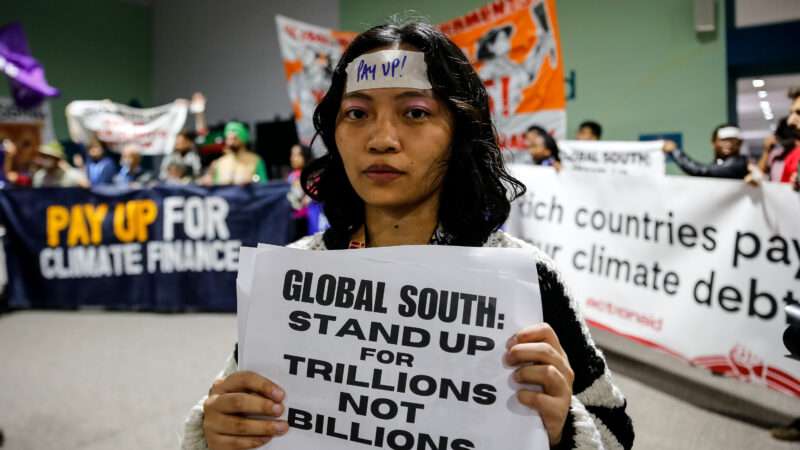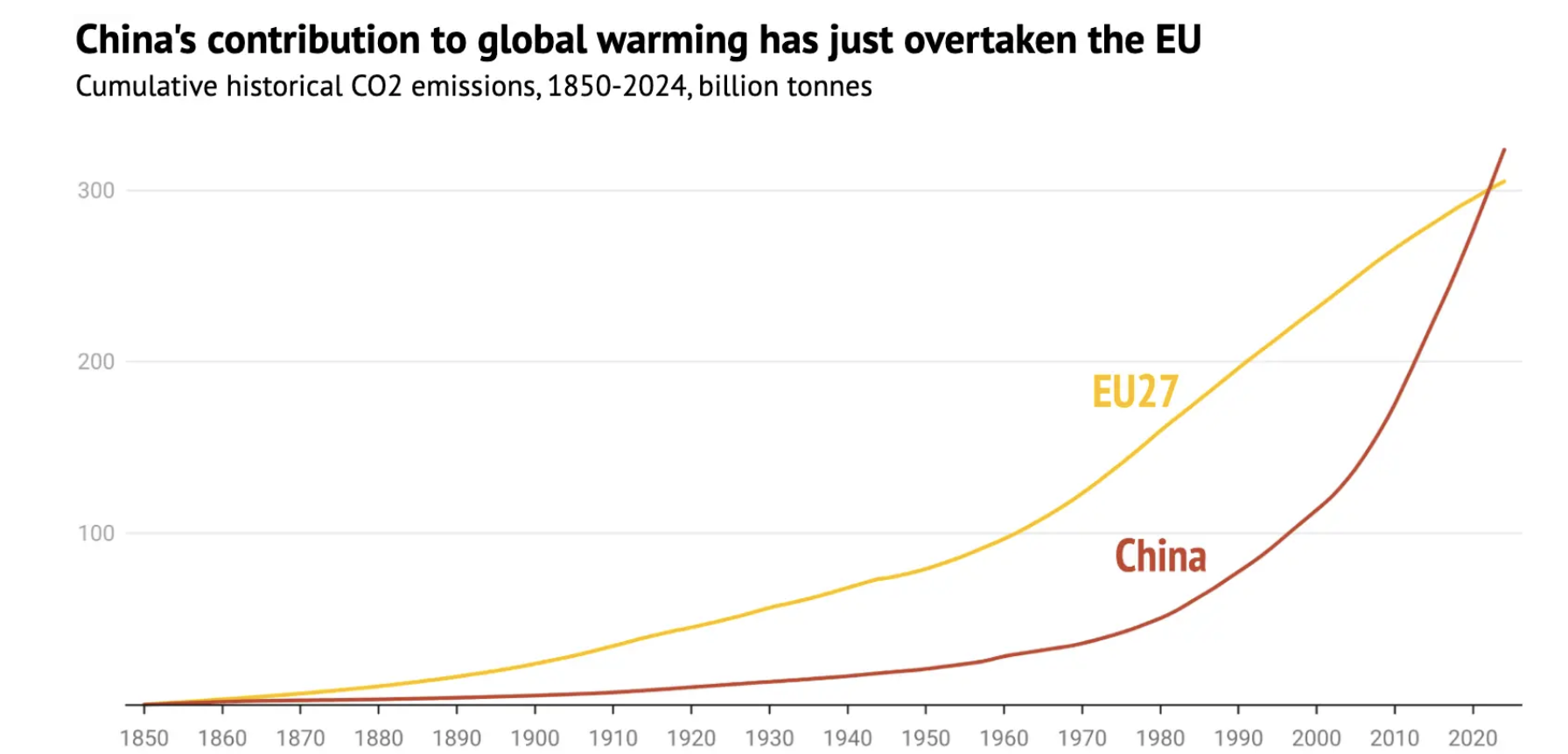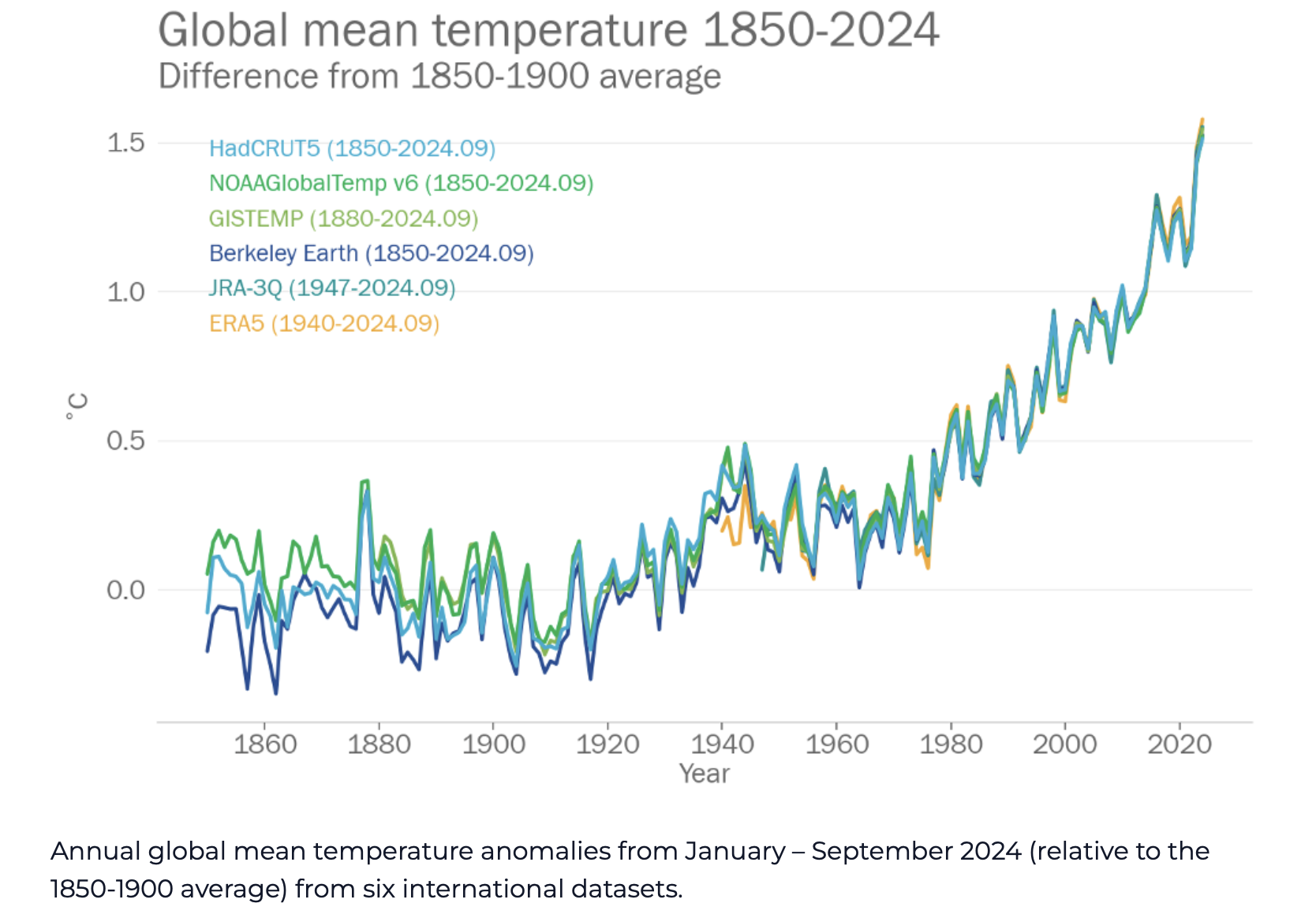
The annual United Nations (U.N.) Climate Change Conference (COP29) in Baku, Azerbaijan concluded on Sunday morning with rich countries pledging to supply $300 billion per year in climate project financing. The monies would come from a wide variety of sources including public funds, development-bank loans and private finance mobilized by government spending to poor nations by 2035.
This New Collective Quantified Goal on Climate Finance (gotta love U.N.-speak) is up from the $100 billion promised by the developed countries at COP15 in 2009 and further codified in the 2015 Paris Climate Change Agreement. However, this amount is far from the $1.3 trillion in government-to-government grants that were being demanded by developing nations. They argued that that sum was necessary to help them adopt low-carbon energy generation technologies and to cope with damages resulting from extreme weather and sea level rise associated with man-made climate change.
Aspirationally, the U.N. climate finance decision text "calls on all actors to work together to enable the scaling up of financing to developing country Parties for climate action from all public and private sources to at least USD 1.3 trillion per year by 2035." It is notable that "all actors" include not only the 24 countries classified as "developed" under the 1992 U.N. Framework Convention on Climate Change, but also private investments and "voluntary" contributions from such "developing" countries as China and Saudi Arabia.
Throughout the decades of U.N. climate change negotiations, China has insisted on maintaining its developing country status and refused to take any formal responsibility for its historical greenhouse gas (GHG) emissions. That position is becoming increasingly untenable now that its emissions have exceeded those of the European Union.

In any case, the developing country governments are not giving up on their funding demands. Referencing next year's U.N. climate change conference in Brazil (COP30), the COP29 decision launches the "Baku to Belém Roadmap to 1.3T," aiming to scale up climate finance to developing countries at that meeting.
The global stocktake decision at COP29 urges signatories to the Paris Agreement to submit their new pledges, i.e. nationally determined contributions (NDC), for cutting their GHG emissions by February 2025. The stocktake document "reaffirms the Paris Agreement temperature goal of holding the increase in the global average temperature to well below 2 °C above pre-industrial levels and pursuing efforts to limit the temperature increase to 1.5 °C above pre-industrial levels." To achieve that goal, the U.N. notes GHG emissions cuts of 42 percent relative to 2019 levels are needed by 2030. The stocktake decision "notes with concern" that current NDCs are far from achieving that goal because they only "would reduce emissions on average by 2.6 per cent by 2030 compared with the 2019 level."
Despite nearly 10 years of post-Paris Agreement climate change negotiations, global GHG emissions have continued to increase as have their concentrations in the global atmosphere. These increases correlate with rising average global temperatures; 2024 is on track to be the hottest year ever in the instrumental record, rising to 1.5°C above the pre-industrial average.

The Biden administration has been aiming to raise U.S. international climate finance to $11 billion in 2024. This is likely to be cut almost entirely under the incoming Trump administration. In addition, President-elect Donald Trump will probably once again pull the U.S. out of the Paris Agreement. His administration will also likely roll back Biden administration pledges to cut 2030 U.S. GHG emissions by 50-52 percent below their 2005 levels. Interestingly, despite Trump's promise to "drill, baby, drill," U.S. greenhouse gas emissions, are still likely to fall by 28 percent by 2030 below their 2005 levels, according to an analysis by Carbon Brief, a climate and energy think-tank.
The post Poor Nations Fail to Extract $1.3 Trillion Annually from Rich Countries at U.N. Climate Change Conference appeared first on Reason.com.







